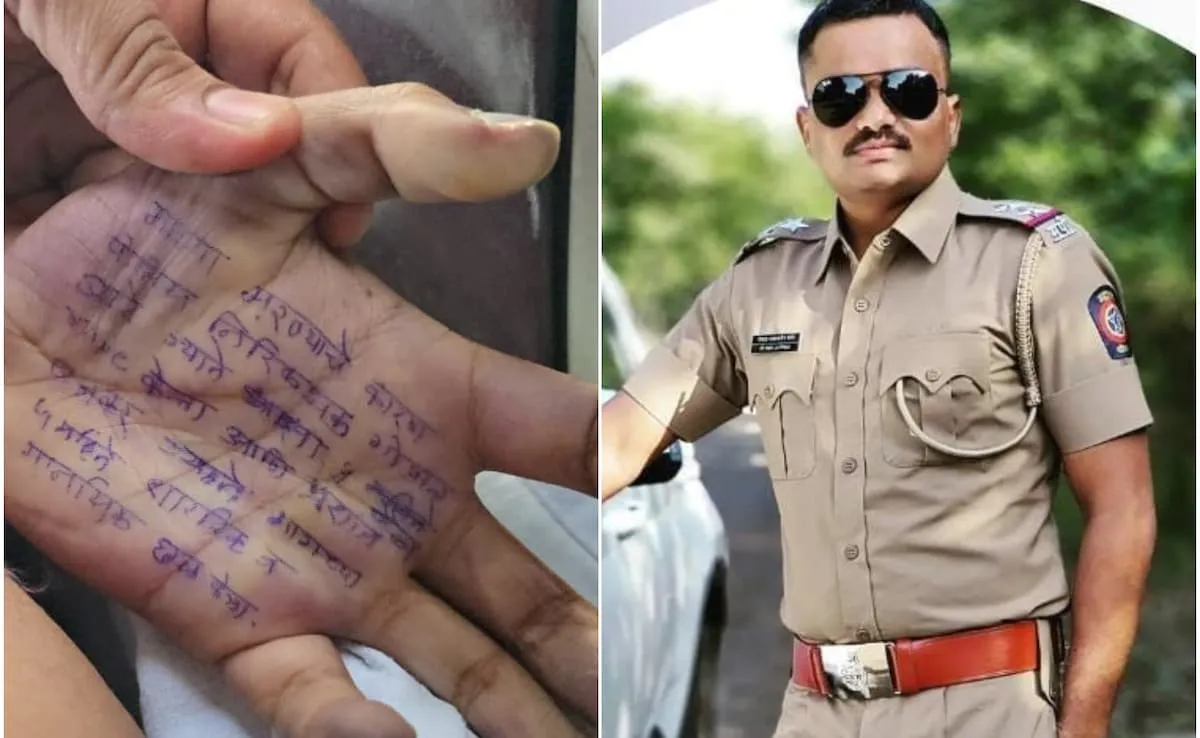Satara Doctor Suicide Case Takes Shocking Turn: Rape Allegation and MP Threat Under Probe

Shocking Satara Doctor Suicide: MP Threats, Police Rape Allegations
A tragic case in Maharashtra’s Satara district has sent shockwaves across the state, as a 26-year-old doctor’s suicide note revealed harrowing allegations of rape, harassment, and threats from a police officer and indirect coercion from a Member of Parliament (MP). The young medical officer, stationed at Phaltan sub-district hospital, ended her life after enduring months of abuse, according to her four-page note. The case has sparked outrage, with accusations of systemic failures and political interference, prompting a high-level investigation into the disturbing claims.
The doctor’s note explicitly accused Sub-Inspector Gopal Badne of raping her multiple times over five months, coupled with relentless mental and physical harassment. She also alleged pressure to issue fraudulent medical certificates for accused individuals in police cases, a demand she resisted. The note further detailed an alarming incident involving an MP, whose personal assistants pressured her to comply, followed by an indirect threat from the MP himself during a phone call. These revelations have raised serious questions about abuse of power and institutional accountability.

Details of the Doctor’s Allegations
The young doctor, who had served at Phaltan sub-district hospital for nearly two years, was just one month away from completing her mandatory rural service bond. She had aspirations to pursue postgraduate medical studies, but her dreams were cut short by the alleged trauma she endured. In her suicide note, she wrote that Sub-Inspector Gopal Badne raped her four times and subjected her to ongoing abuse. The note, found written on her palm and in a detailed four-page letter, described a pattern of coercion by police officials pressuring her to issue fake fitness certificates for accused individuals who were never physically examined.
The doctor’s refusal to comply with these demands led to escalated harassment. In one chilling incident, she recounted how two personal assistants of an MP visited the hospital and forced her to speak with the MP on the phone. The MP allegedly issued an indirect threat, intensifying her distress. Her cousin corroborated these claims, stating that she had repeatedly raised concerns about the pressure to falsify medical documents, including complaints to the Superintendent of Police (SP) and Deputy Superintendent of Police (DSP). However, no action was taken, leaving her vulnerable and unsupported.
The doctor also mentioned harassment from her landlord, Prashant Bankar, adding to her plight. The combination of professional coercion, personal abuse, and lack of institutional support appears to have driven her to take the extreme step. Her note poignantly asked who would be held accountable if anything happened to her, highlighting the systemic failures that failed to protect her despite her attempts to seek help.
Legal Actions and Investigation
Following the doctor’s death, authorities have taken swift action. A case has been registered against Sub-Inspector Gopal Badne and landlord Prashant Bankar under charges of rape and abetment to suicide. Badne has been suspended from duty, and the investigation is being closely monitored by senior officials. Sunil Phulari, Inspector General of Police (Kolhapur division), confirmed that the case is being thoroughly investigated based on the evidence gathered so far. The Satara police are under pressure to ensure a transparent probe, given the high-profile nature of the allegations involving an MP.
The investigation is focusing on the authenticity of the claims in the suicide note, including the alleged involvement of the MP and his aides. Authorities are also examining why the doctor’s earlier complaints to the SP and DSP were not addressed, raising concerns about lapses in the system. The case has underscored the need for stronger mechanisms to protect whistleblowers and professionals facing undue pressure in their workplace.
Political Fallout and Public Outrage
The doctor’s death has ignited a political firestorm, with opposition parties accusing the BJP-led Mahayuti government of shielding errant police officials. Congress leader Vijay Namdevrao Wadettiwar took to social media to criticize the government, stating, “When the protector becomes the predator, how will justice be served?” He questioned why no action was taken on the doctor’s prior complaints and accused the state of enabling police atrocities. The case has fueled demands for accountability and stricter oversight of law enforcement officials.
In response, BJP leader Chitra Wagh described the incident as “unfortunate” and assured a thorough investigation. She emphasized that the government is committed to supporting women and urged them to use the 112 helpline to report such issues. Wagh also promised that the Satara Superintendent of Police would face scrutiny for failing to act on the doctor’s earlier complaints. The political discourse surrounding the case has intensified public anger, with many calling for justice and systemic reforms to prevent such tragedies.
Systemic Issues and Calls for Reform
The Satara doctor’s case has exposed deep-rooted issues within the system, particularly the vulnerability of women in professional settings. The pressure to issue fraudulent medical certificates highlights the ethical dilemmas faced by medical professionals, especially in rural areas where oversight may be limited. The doctor’s unanswered complaints to senior police officials point to a lack of accountability and responsiveness, raising questions about the effectiveness of existing grievance mechanisms.
Women’s safety in the workplace has once again come under scrutiny, with activists demanding stronger laws to protect professionals from harassment and coercion. The involvement of a political figure in the allegations has further fueled calls for transparency and impartiality in the investigation. The case has also highlighted the need for better security measures at public institutions like hospitals, where the doctor had flagged inadequate safety protocols.
Steps Forward and Support for Victims
As the investigation progresses, authorities have been urged to ensure justice for the doctor and her family. The suspension of Sub-Inspector Badne is a step forward, but public pressure is mounting for accountability from all parties named in the suicide note, including the MP and his aides. The case has also prompted discussions on improving workplace safety for women, particularly in high-pressure professions like medicine and public service.
For victims of harassment or abuse, resources like the 112 helpline provide a critical lifeline. However, the doctor’s experience underscores the need for prompt and effective action on complaints. The government has been urged to establish dedicated support systems for women in vulnerable professions, including anonymous reporting mechanisms and swift investigations into allegations of misconduct.
The Satara doctor’s tragic death serves as a stark reminder of the challenges faced by women in professional and rural settings. As the investigation unfolds, it is imperative that authorities act decisively to deliver justice and implement reforms to prevent such incidents in the future. The nation watches closely, hoping for accountability and systemic change to protect those who dedicate their lives to serving others.
Comment / Reply From
No comments yet. Be the first to comment!











